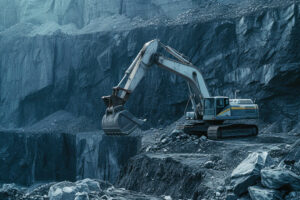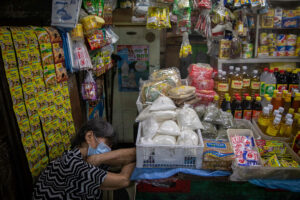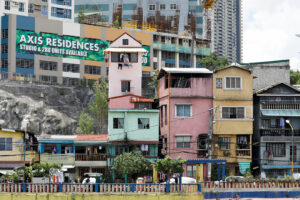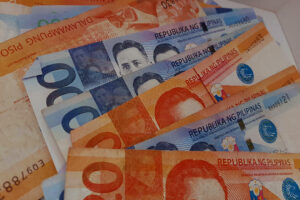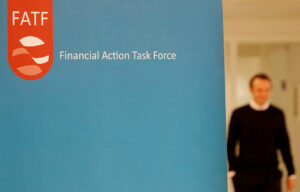(Part 2)
The recent Palawan Mining Stakeholders Congress showed the very important influence of the Catholic Church and other religious organizations on public opinion about the desirability of large-scale mining investments in provinces of the Philippines that are rich in mineral ores, especially copper, nickel, and iron and not to mention coal reserves.
Although the majority decision of the stakeholders to declare a moratorium on the issuance of new permits is not legally binding, the Governor of Palawan said that such a consensus will be considered as a major factor for the provincial government’s future policies on mining because it reflected the sentiments of the people.
It would be wise for the top officials of mining companies and LGU heads who recognize the positive contributions of mining income, employment, and poverty alleviation to know very well what the teachings of the Catholic Church are on the issue of sustainable mining. There have already been some notable cases where, in cooperation with LGU heads, Catholic bishops and clergy have influenced the constituents to vote for a no-mining policy, such as in Oriental Mindoro. Although rich in mineral resources, Oriental Mindoro is even richer in very productive agricultural lands and an abundance of water resources that the province can make do with without having to depend on their mineral resources for the livelihood of its population.
That is why, in the many other provinces where mining can make a significant contribution to generating income and employment for the local communities, especially for indigenous tribes, it is of the utmost importance for the investors and other pro-mining supporters to understand where the Church and other religious groups are coming from when they have strong reservations about mining.
As the Apostolic Vicar of Puerto Princesa, the Most Rev. Socrates Calamba Mesiona, explained in great detail during the Palawan Stakeholders Congress, a most important social teaching of the Church is the “universal destination of all the goods of this world.”
It is the Creator’s will that the earth and all which belongs to it be destined for all peoples. It goes against both distributive and social justice that the earth’s goods would only be for the few and powerful, depriving the less privileged people of their use. Pope Francis, quoting from the Second Vatican Council document Gaudium et Spes, defines the common good (as it is also defined in the Philippine Constitution of 1987) as the “sum of those conditions of social life which allow social groups and their individual members relatively thorough and ready access to their own fulfilment.” Rather than the utilitarian principle of the greatest good for the greatest number, the common good is respect of the human person as such, endowed with basic and inalienable rights in order to fulfill his or her integral development.
Then Bishop Mesiona walked the talk, going from principle of reflection to criteria for judgment, and all the way to guidelines for action. He did not stay at the level of motherhood statements but got down to brass tacks by describing the many gifts of nature, other than mineral ores, of the Province of Palawan. Waxing lyrical, he noted that we do not need to go somewhere else to marvel at God’s beautiful creation — our beautiful Province of Palawan (indeed, Palawan has been voted by international tourism groups as the “Best Island Resort in the World”). Bishop Mesiona presented a litany of the gifts of creation to his province: Palawan is blessed with rich natural resources and highly diverse flora and fauna found in both land and sea… Its coastal and marine ecosystems include coral reefs (379 species of corals), seagrass meadows (12 species), and mangroves (31 species, distributed in 44,500 hectares of mangrove forests, the largest remaining mangrove cover left in the Philippines). It also harbors several marine species such as marine turtles, dugong, and whale sharks.
Bishop Mesiona presented ample reasons why Palawan is referred to as the “last ecological frontier.” He described the characteristics of terrestrial and freshwater ecosystems of the province as diverse. It is composed of old growth and second growth tropical rainforest which are very difficult to replicate even with the best intentioned and meticulously planned tree planting programs or reforestation. There is karstic limestone, forest over ultramafic rocks, casuarinas and beach forests…These serve as habitats to freshwater fish (a total of 18 Philippine endemics), amphibians (26 Philippine endemics), reptiles (69 species), birds (279 species), migratory birds, and terrestrial mammals (58 species, among which 16 are endemic to Palawan). Even the best mining practices would not be able to avoid wreaking havoc on some of these treasures of nature found in Palawan.
Bishop Mesiona did not completely ignore the blessings that mining can bring to a region that still has a high rate of poverty, which is the fact in Palawan — there are districts where the poverty incidence is even higher than the national average of 22%. He does admit that there are those who support mining in their respective localities because they believe in tangible benefits, such as those in Bataraza town where the Nickel Asia Mining Corp. has mining operations, or the community surrounding MacroAsia Mining Corp. He asked, however, a rhetorical question: “But who are really the main beneficiaries of the so-called ‘development’ and at what price when our mineral resources are extracted, exploited, and brought somewhere else and can never be replaced for the next generation of Palawenos to also see, enjoy, and even behold?”
Referring to Pope Francis, who has written a whole social encyclical entitled “Laudato Si” on the issue of sustainable development, the Bishop reminded us that development must be considered from the inter-temporal point of view. Present development cannot be at the cost of future generations. Pope Francis insists that the common good also extends to future generations: “We can no longer speak of sustainable development apart from intergenerational solidarity… which is not optional, but rather a basic question of justice, since the world we have received also belongs to those who follow us.”
Here, we learn of another kind of commutative justice, which is giving our equals their due. The “others” to which intergenerational solidarity refers are not our contemporaries but generations to come. We cannot try to promote our welfare today by completely disregarding the welfare of future generations. This should be especially felt by parents with children, grandchildren, and those with greater longevity, great-grandchildren.
Bishop Mesiona did not stay only at the level of “principles for reflection” and “criteria for judgment” which constitute the components of the social doctrine that the Teaching Authority of the Church has the obligation to impart to the Catholic faithful. There must be the final “guidelines for action,” walking the talk so to speak.
In this regard, the Bishop gave the audience a reminder that the harsh reality in the Philippines is that good intentions of state regulators are not enough. Often, the best-laid plans of the Department of Environment and Natural Resources (DENR) cannot prevent serious environmental destruction by unscrupulous investors. Indeed, when DENR Secretary Yulo-Loyzaga was asked in a joint session of the committees on local government and environment, natural resources, and climate change about lapses in the issuance of environmental compliance certificates (ECC) to projects in protected areas, she replied: “We are not fully in control of these areas, as you know, given the kind of manpower that we have. The local governments are our partners in the protection of the environment. This is not DENR’s sole job — this is the job of everyone.”
Prudence would then dictate that until the various government agencies can get their act together in truly protecting the environment from irresponsible mining, there should be a moratorium in issuing new permits.
(To be continued.)
Bernardo M. Villegas has a Ph.D. in Economics from Harvard, is professor emeritus at the University of Asia and the Pacific, and a visiting professor at the IESE Business School in Barcelona, Spain. He was a member of the 1986 Constitutional Commission.

